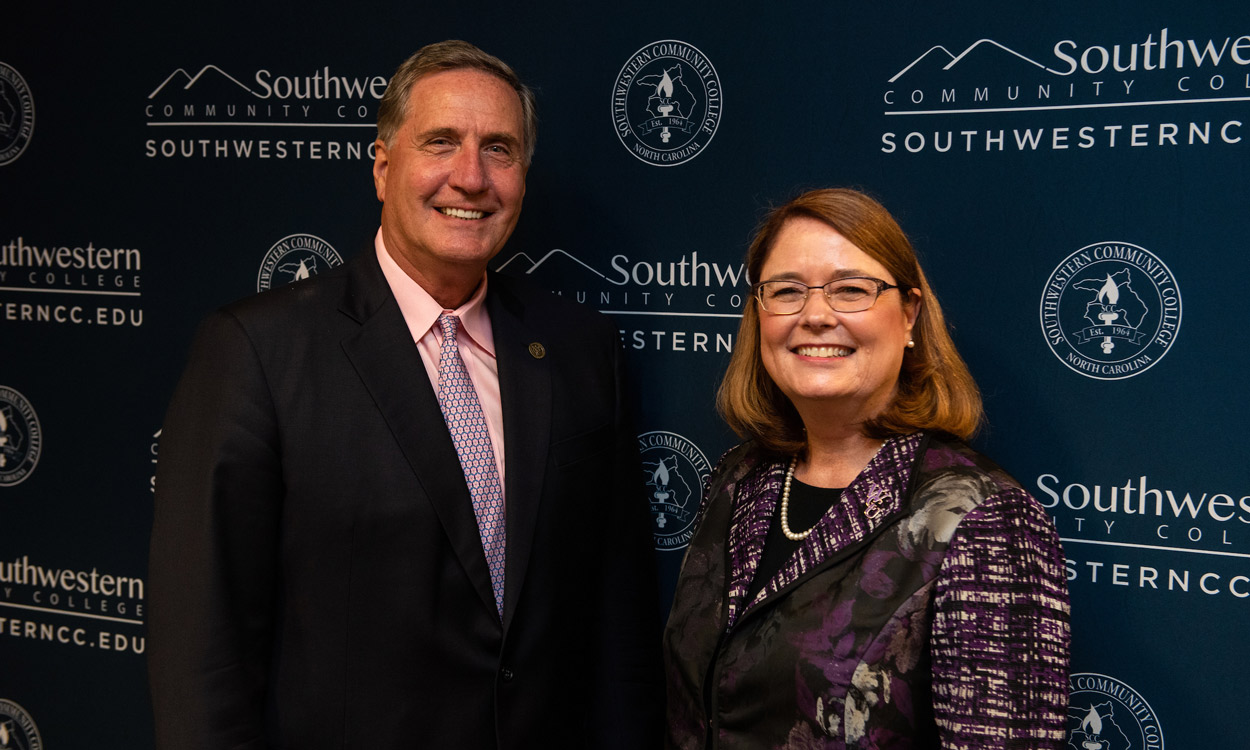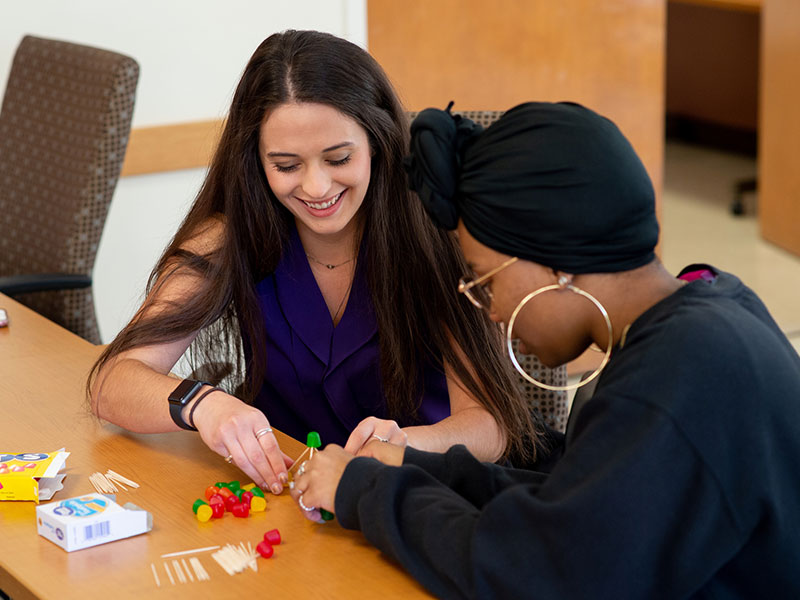Pandemic Forces Counseling Students to Find New Ways to See Clients
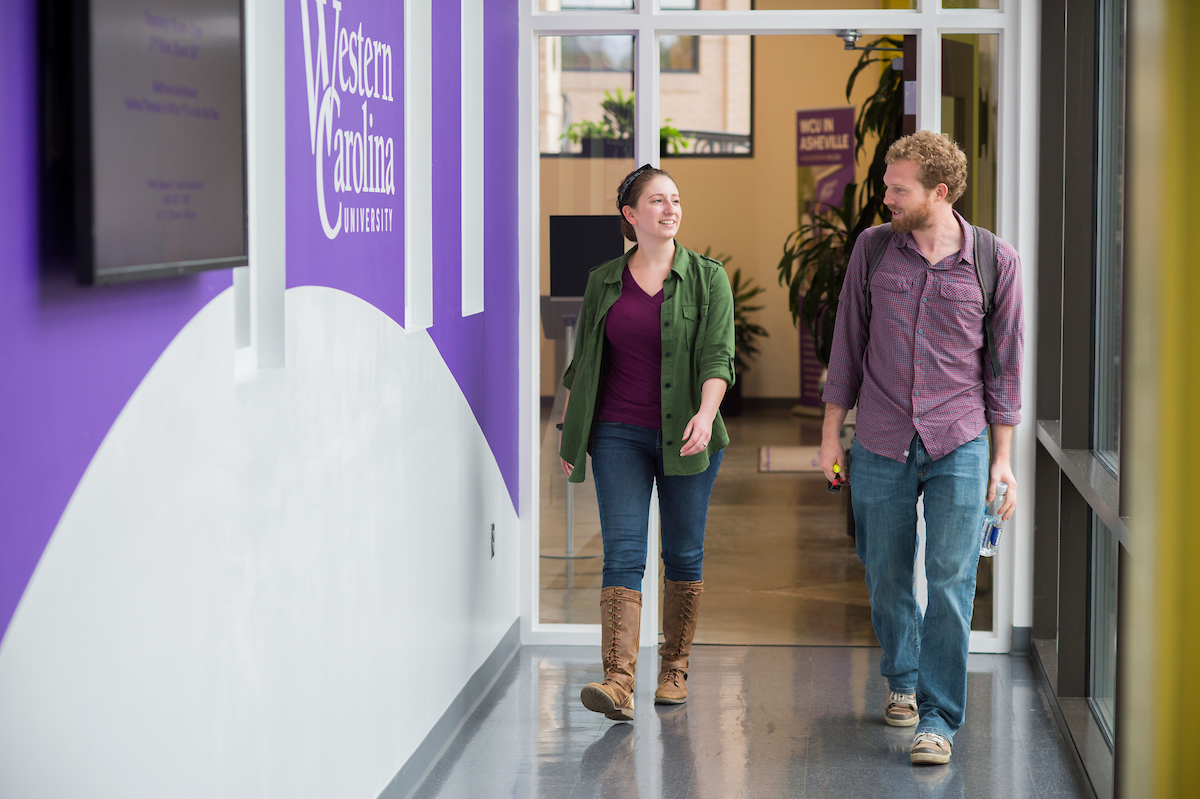
There is nothing like a pandemic to change the rules of work, making us pivot on the fly, then hope for the best, while simultaneously providing opportunities to learn when we least expect it.
David Wynn, a second-year graduate student in Western Carolina University’s counseling program, was forced to change the way he counsels clients after COVID-19 shuttered nonessential businesses across the country. Wynn was dubious, at first, of a new delivery system that was the antithesis of his beliefs regarding counseling.
“Telecounseling was not even on my radar, even though it’s been a trending topic in the field,” he said. “Now that I’m doing it, I love being home, and I also really enjoy how convenient it is for my clients.”
Wynn, who lives in Hot Springs, is an intern this semester at Blue Ridge Treks, an Asheville-based outdoor, experiential, adventure-based therapy program for teens and families, where meeting with his young clients means hiking, canoeing, doing service projects or just spending time in nature together — all of which came to a screeching halt with the COVID-19 pandemic.
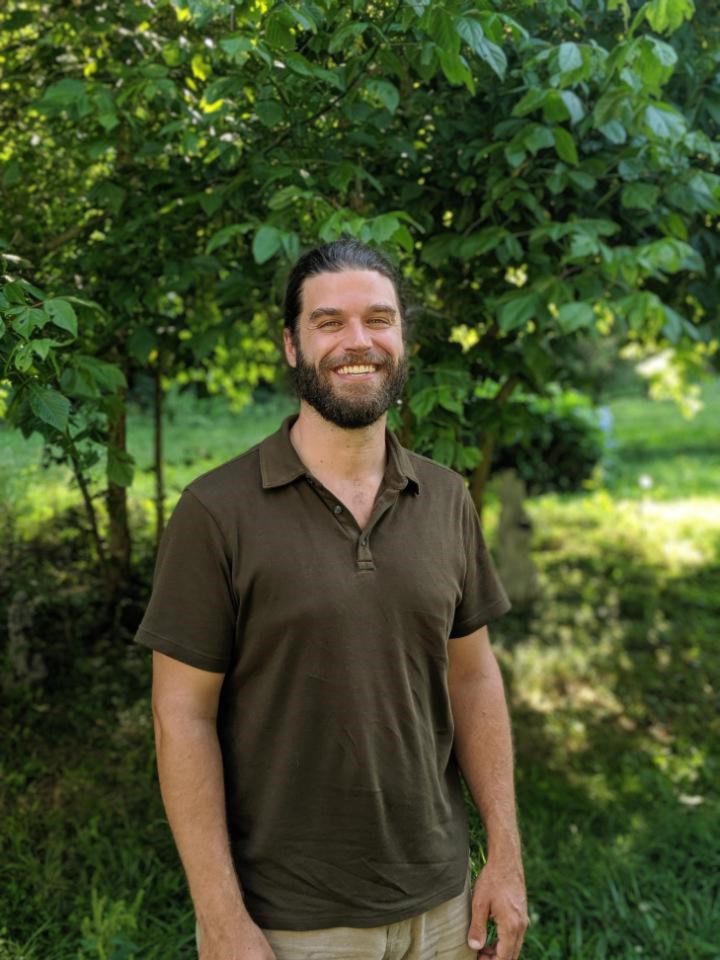
“Personally, I was really concerned because our approach is very hands on, it’s very relational. We’re using the outdoors,” said Wynn, who works exclusively with boys, most of whom are teenagers. “I was like, ‘Wow, how are we going to do this?’”
Turns out, it was pretty simple, he said, thanks to Zoom, a video conferencing platform that allows him to see his clients using his home computer. “They’re also at home, doing their thing, and then when it’s time for our session, they hop on their computer and we chat and we catch up and then they can go back to their lives,” Wynn said. “I think that seamlessness for both parties makes it a little bit more approachable, more accessible for both of us.”
Another benefit, Wynn said, was he switched his sessions from one 45- to 60-minute session a week to two 30-minute sessions a week, which was better for his high school clients who had trouble sitting that long staring at him on a computer. “What I’m finding therapeutically is, say I see a kid on Monday and then I’ll also see him on Thursday. It’s neat just to keep that conversation going, whereas when I was meeting them in person once a week, it felt like the conversation would drop and we would have to pick up a little bit the next time,” he said. “Some of that might just be my population I’m working with.”
Melodie Frick, counseling program director in WCU’s Department of Human Services, said the idea of telehealth is so new that no official training has been provided to students—just general discussions—because no agencies or schools in the area use it as their primary source for counseling. “Face-to-face counseling services is the preferred and most effective method,” Frick said.
However, COVID-19 has presented an opportunity for her graduate students to learn how to make adjustments when unexpected events occur. “It has been a big learning curve on how to use technology for the purpose of counseling, how to assist clients in using the technology, how to assist them if they do not have the resources or access to technology, and maintaining professional boundaries,” Frick said.
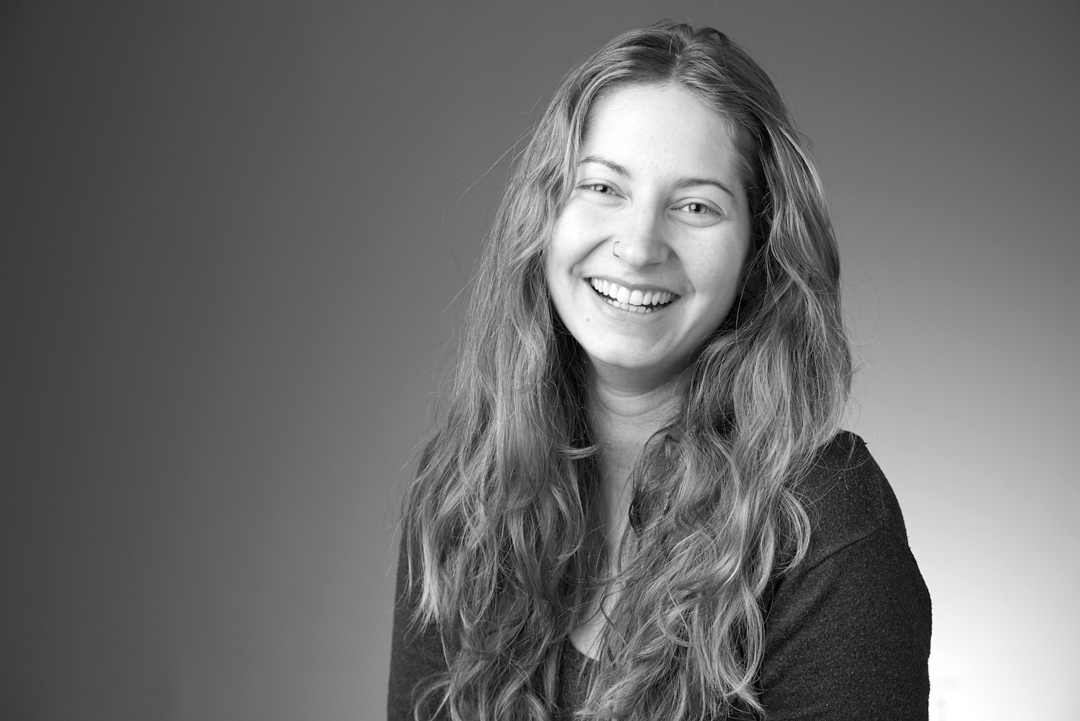
Graduate student Rachel Shopper specializes in bilingual Spanish counseling, providing school- and office-based counseling as an intern with Access Family Services, a community behavioral health agency in Asheville. About one-third of her sessions are in Spanish. Shopper, too, has moved her clients to Zoom meetings.
“While the platform is quite effective, I do feel less connected to my clients, and of course some families have technical difficulties or lack the technology resources to access telehealth services,” she said. “I also have more no-shows and rescheduled sessions than in the past. I think it's harder for people to stay on schedule when they have fewer time commitments and less structure to keep them on track. All that being said, we are continuing to do good work.”
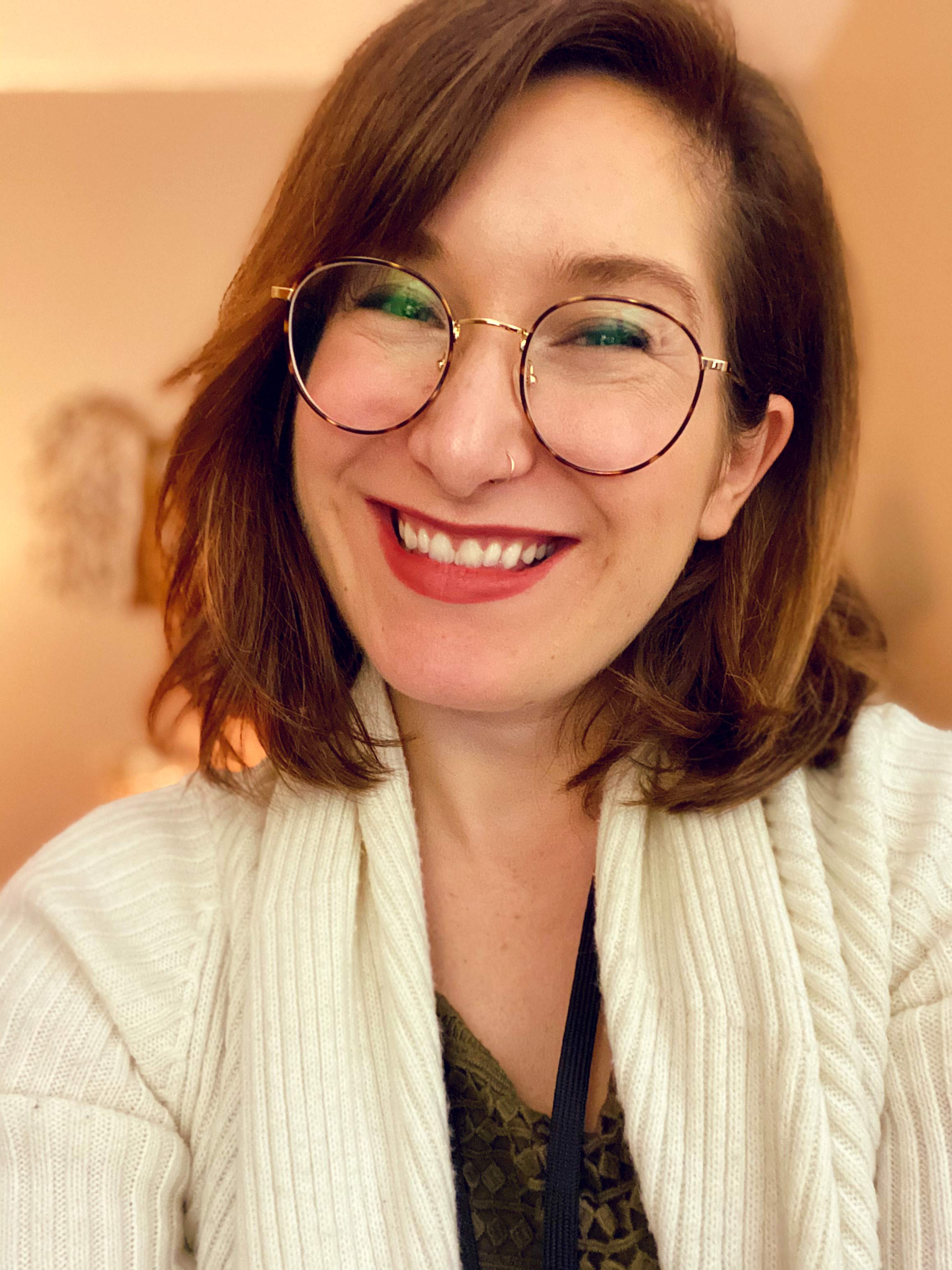
Channing Kent, a counseling intern at Our Voice, a nonprofit crisis intervention and prevention agency serving victims of sexual violence in Buncombe County, said that while she has lost a few clients because of transitioning to telehealth, the new platform has helped her develop a deeper understanding of her clients. “I still see about six individual clients on a weekly basis, using an end-to-end encrypted video chat service, working out of my bedroom,” Kent said. “It has been a strangely intimate transition, but I now have an unexpected sense of unity and shared struggle with my clients. It has definitely strengthened all of my therapeutic relationships.”
Besides forcing counseling providers to change the way they deliver their services, COVID-19 has also changed the focus of counseling sessions, as new and unexpected stressors arise. “I'm seeing that there are gifts and opportunities for people during the quarantine, and also new or intensified hardships,” said Shopper, who works primarily with adolescents. “Many of my clients are finding that this time brings up questions of how to live meaningfully, now and in the future.”
For Wynn, fallout from the pandemic has put his clients into two camps: high school students who are struggling with too much parent time and middle school students and younger, who seem to enjoy being home with their mom and dad, oblivious to the seriousness of COVID-19’s effects. “Some of my kids who have ADHD who don’t normally thrive in that typical school setting are doing incredibly well when the school assignments just come to them and they do them at their pace and with help from their parents,” he said.
“My high schoolers don’t want to be home with mom and dad 24/7. They’re losing their minds and they’re more stressed than they were before because they’re not getting the social stimulation they would get at school or the structure their school provides for them. A lot of these guys are having to improvise their own structure, and wondering how to do that. Some of them are rising to that challenge and some are really struggling to find a way forward. That’s been a lot of my work.”
Frick says that while COVID-19 has brought new challenges to the field of counseling, her graduate students are well-grounded in the fundamentals of therapy, which “remain the same regardless of the format provided” and have reconfirmed the “importance of the work provided in the counseling field.”
“Although they may not have originally planned on doing telehealth counseling services, this is providing them training for future work when the need for telehealth arises,” Frick said. “It also has shown students the importance of taking care of themselves, both personally and as counselors, especially when they may be facing the same challenges or crises as their clients.”
For now, Wynn is making the most of his time learning new ways to help his young clients, while taking care of himself and his own family. “As we transition back to in-person sessions, I would definitely use this as a tool,” he said. “It’s just so convenient and an easy way to keep that conversation going.”
Discover the Master of Counseling Programs
Program Overview
Location: Biltmore Park
Full-Time or Part-Time
Prerequisites: GRE Required
App Deadline: Feb. 1
Degrees: School, Clinical Mental Health
Discover More About the Programs
